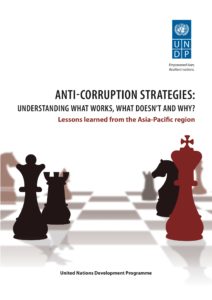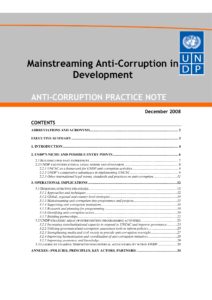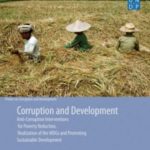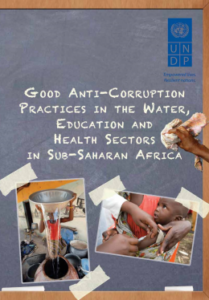Anti-Corruption Strategies: Understanding What Works, What Doesn’t and Why?
October 2014
This report explains the internal and external forces for the development of national anti-corruption strategies in the region. It also tries to identify common pitfalls at different stages of developing and implementing anti- corruption strategies, and provides recommendations to help countries develop effective anti-corruption strategies based on evidence.
This publication aims to contribute to achieving the SDGs from an anti-corruption perspective.
#corruption
#anticorruption





